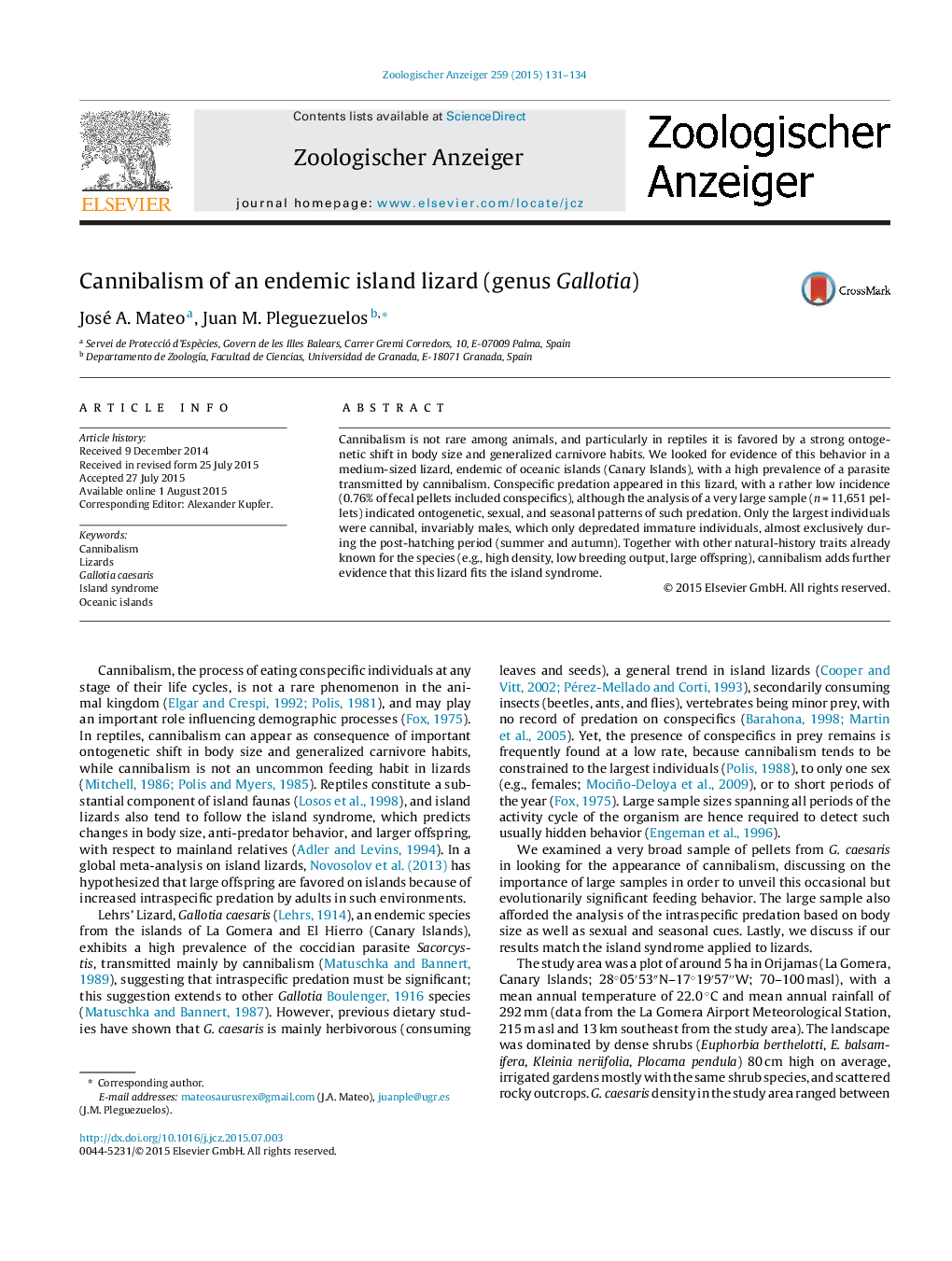| Article ID | Journal | Published Year | Pages | File Type |
|---|---|---|---|---|
| 2790505 | Zoologischer Anzeiger - A Journal of Comparative Zoology | 2015 | 4 Pages |
Cannibalism is not rare among animals, and particularly in reptiles it is favored by a strong ontogenetic shift in body size and generalized carnivore habits. We looked for evidence of this behavior in a medium-sized lizard, endemic of oceanic islands (Canary Islands), with a high prevalence of a parasite transmitted by cannibalism. Conspecific predation appeared in this lizard, with a rather low incidence (0.76% of fecal pellets included conspecifics), although the analysis of a very large sample (n = 11,651 pellets) indicated ontogenetic, sexual, and seasonal patterns of such predation. Only the largest individuals were cannibal, invariably males, which only depredated immature individuals, almost exclusively during the post-hatching period (summer and autumn). Together with other natural-history traits already known for the species (e.g., high density, low breeding output, large offspring), cannibalism adds further evidence that this lizard fits the island syndrome.
